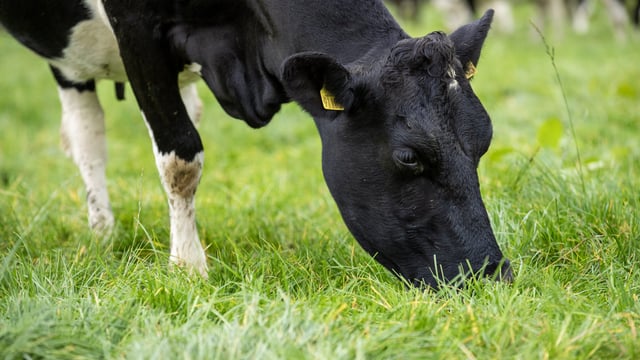Case dismissed against woman who provided bull semen analysis
A case brought by the Veterinary Council of Ireland (VCI) against a woman who provided a bull semen analysis service has been dismissed in the district court.
Barrister for the VCI, Stephen O’Donoghue told Bantry District Court that there were two charges being brought against Catherine Beavon (29) of Rockmount, Drimoleague, Co. Cork who is the sole director of the company Bull Test Ltd.
The barrister said that it was alleged that in contravention of the Veterinary Practice Act 2005 Catherine Beavon had diagnosed the state of health of an animal and had furnished a written certificate of the diagnosis.
The charges related to services provided by Catherine Beavon’s company Bull Test Ltd., where she would analyse the semen of bulls for prospective sellers or buyers and provide a certificate to the customer with the results of the analysis.
The VCI argued that such a service was effectively a fertility test and the practice of veterinary medicine and as such, should only be carried out by a qualified and registered veterinary practitioner.
Michael Heffernan, an authorised officer appointed by the VCI told the court he was asked to investigate a certificate issued by Bull Test Ltd., regarding the sale of a bull on March 30, 2022.
The bull was sold by Thomas Finucane, Kilflynn, Co. Kerry to Mary O’Dea of Sherin’s Cross, Kilmallock, Co. Limerick at the Munster Branch of the Irish Angus Society sale in Kilmallock Mart.
Thomas Finucane had engaged the services of Bull Test Ltd., prior to the sale and Mary O’Dea received a certificate from Bull Test along with a certificate of pedigree when she purchased the animal.
Thomas Finucane told the court that he had paid Bull Test to “find out if the animal was right or wrong” and said that from the result of the test he understood the animal to be fertile.
Cross examined by defence solicitor Flor Murphy, Thomas Finucane said that at no point did Catherine Beavon mention fertility and there was no reference to fertility on the certificate she issued with the test results.
Mary O’Dea told the court that when she bought the bull, the brochure at the sale described the animal as being “fertility tested”.
She added that she understood the animal was fertility tested although the Bull Test certificate did not mention the word fertility. She said she had no reason to question it as “the bull was working".
The prosecution called veterinary surgeon Peadar Ó'Scanaill who told the court that in his view the certificate issued by Bull Test amounted to a diagnosis of the animal’s health.
He said that the certificate effectively told the customer if the animal was acceptable and whether it was fertile and therefore suitable for sale.
Questioned by the defence, he agreed that a semen analysis was only one part of a fertility test that would be carried out by a vet which would usually include a physical examination of the animal as well.
Defence solicitor Flor Murphy said that he had written confirmation from the VCI’s own legal department that a layperson could carry out a semen analysis and provide somebody with the results.
He said that this was all his client was doing and therefore was perfectly legal.
Flor Murphy asked the judge for direction on two points - firstly, that it was Bull Test Ltd., and not Catherine Beavon that should be prosecuted, and secondly, that the certificate issued was only a semen analysis and not a veterinary certificate.
After rising to consider the arguments, Judge Philip O’Leary dismissed both of the charges against Catherine Beavon.
He said he was not satisfied there was proof of wilful neglect on her part as a company director and there was a reasonable doubt as to whether the service being provided was simply a semen analysis test.





